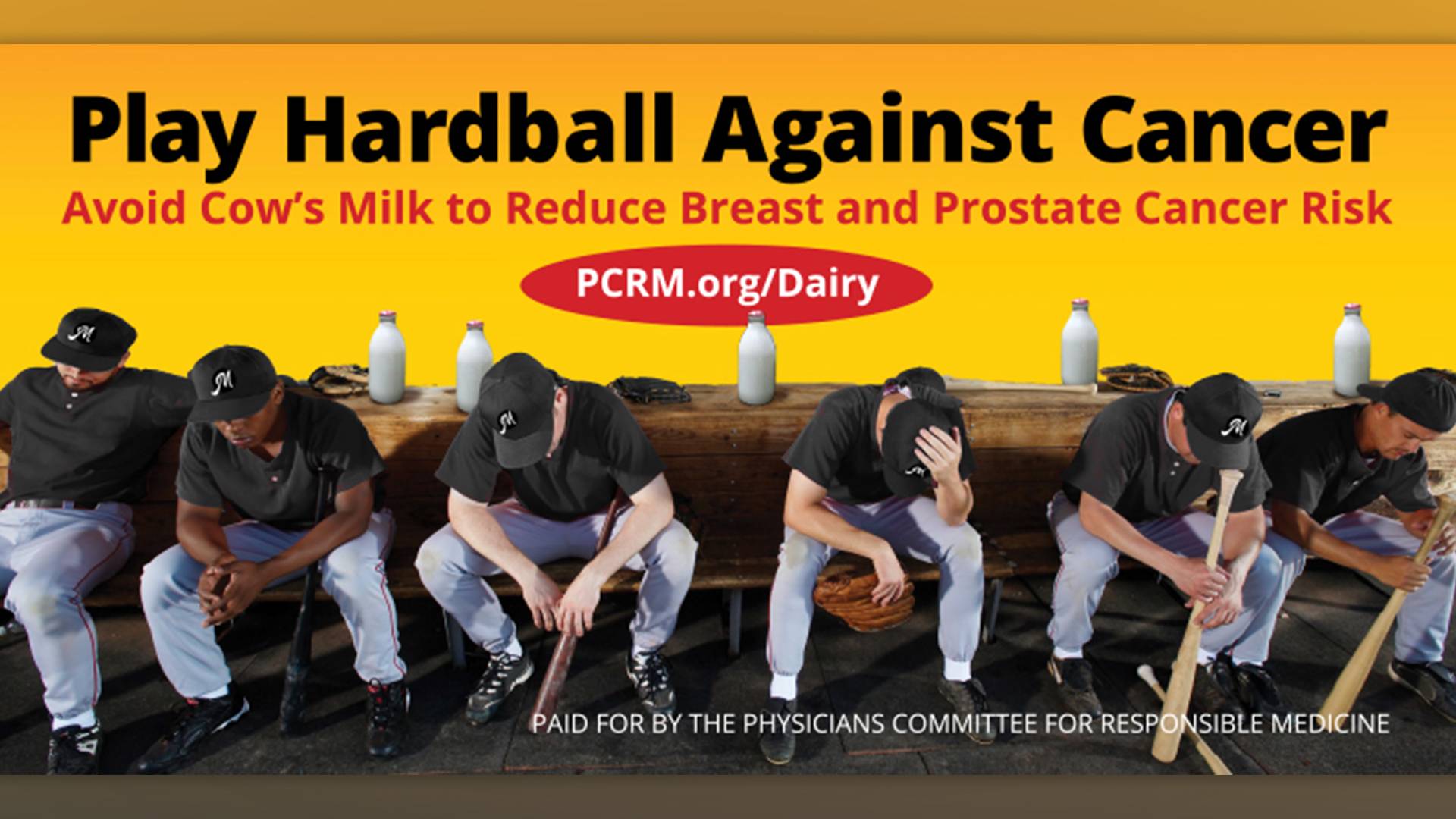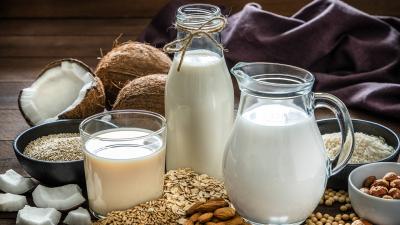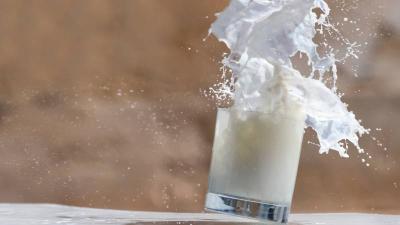Doctors Group Urges Milwaukee Milkmen Baseball Team to Ditch the Dairy

MILWAUKEE, Wisc.—“Play Hardball Against Cancer: Avoid Cow’s Milk to Reduce Breast and Prostate Cancer Risk,” says a billboard the Physicians Committee placed in Milwaukee in advance of the Milwaukee Milkmen’s opening day. In a letter to the baseball team, the doctors group is urging the team to stop serving and promoting milk and to add a new plant milk mascot named “Al Mond” to promote the benefits of a plant-based diet.
The billboard, which directs viewers to PCRM.org/Dairy, is located at 76th Street on the west side, 188 feet south of Morgan Avenue facing north.
“The Milwaukee Milkmen’s fans deserve to know that cow’s milk doesn’t do the human body good: It can increase the risk of prostate and breast cancers, among other health problems,” wrote Josh Cullimore, MD, MPH, director of preventive medicine for the Physicians Committee for Responsible Medicine, in a letter to Mike Zimmerman, owner of the Milwaukee Milkmen. “We urge you to warn your fans about the dangers of dairy and stop serving and promoting cow’s milk. Instead, we encourage you to add plant milk options—such as almond, oat, and soy—to your concessions and add a plant milk mascot, such as “Al Mond,” who promotes the benefits of a plant-based diet.”
The team currently has a mascot named Bo Vine.
Dr. Cullimore also recommended possible new names for the team that reflect the possible health consequences of consuming milk and other dairy products.
A study published last week found that for every 50 grams (less than a 1/4 cup) of milk and other dairy products consumed per day, overall, liver, and female breast cancer risk increased by 7%, 12%, and 17%, respectively.
Research also shows that dairy products including milk increase prostate cancer risk, recurrence, and mortality. High intakes of dairy products including whole and low-fat milk increase the risk for prostate cancer, according to a meta-analysis that looked at 32 studies. In another study, men who consumed three or more servings of dairy products a day had a 141% higher risk for death due to prostate cancer compared to those who consumed less than one serving.
There will be an estimated 5,590 new cases of prostate cancer and 740 prostate cancer deaths in Wisconsin in 2022, according to the American Cancer Society.
But avoiding dairy products and eating a more plant-based diet may help protect the prostate. A study published in the American Journal of Clinical Nutrition found that men who followed a vegan diet had a 35% lower prostate cancer risk than those following a nonvegetarian, lacto-ovo-vegetarian, pesco-vegetarian, or semi-vegetarian diet.
Research funded by the National Cancer Institute, the National Institutes of Health, and the World Cancer Research Fund, found that women who consumed 1/4 to 1/3 cup of cow’s milk per day had a 30% increased chance for breast cancer. One cup per day increased the risk by 50%, and 2-3 cups were associated with an 80% increased chance of breast cancer. The study cites research showing that vegans but not lacto-ovo-vegetarians experienced less breast cancer than nonvegetarians.
There will be an estimated 5,380 new cases of breast cancer and 720 breast cancer deaths in Wisconsin in 2022, according to the American Cancer Society.
Scientific evidence also shows that milk and other dairy products increase the risk of ovarian cancer, asthma, cognitive decline, heart disease, and early death, and offer little if any protection for bone health.
Many Americans also suffer from lactose intolerance, which causes bloating, diarrhea, and gas. The National Institutes of Health estimates that 30 million to 50 million American adults are lactose intolerant, including 95% of Asians, 60-80% of African Americans and Ashkenazi Jews, 80-100% of American Indians, and 50-80% of Hispanics.
Plant-based diets rich in fruits, vegetables, grains, and beans provide plentiful calcium, potassium, and magnesium. The natural source of vitamin D is sunlight, and fortified cereals, grains, bread, orange juice, and plant milks are dietary options.
Baseball players can also benefit from a plant-based diet. Research shows that plant-based athletes experience improvements in heart health, performance, and recovery.
Media Contact
Michael Keevican
202-527-7367
mkeevican[at]pcrm.org
Founded in 1985, the Physicians Committee for Responsible Medicine is a nonprofit organization that promotes preventive medicine, conducts clinical research, and encourages higher standards for ethics and effectiveness in education and research.







